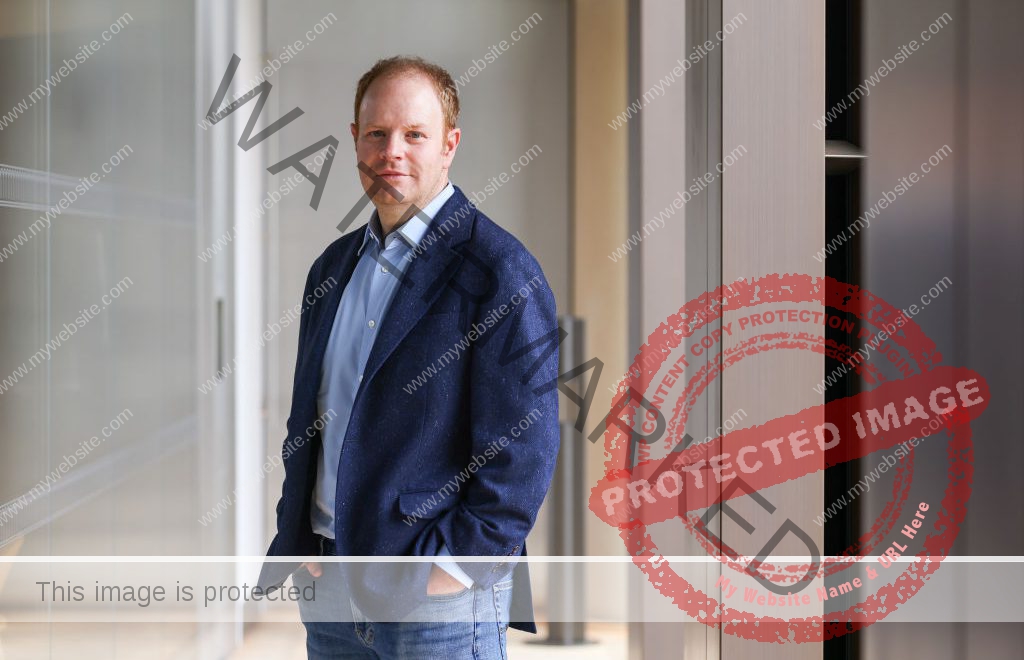Rippling’s Parker Conrad on the company's new round, new SF lease, and also, its newest critic | TechCrunch
Last week, TechCrunch broke the news that the workforce management software outfit Rippling was on the cusp of closing a new, $200 million round of funding at a hefty $13.4 billion valuation led by Coatue. We also reported that the round featured a separate, $670 million secondary component meant to give some of the company’s investors a bigger bite of the company, while letting Rippling’s employees – some of whom joined at the outset in 2016 – cash out some of their shares.
Rippling declined to comment at the time, but in an interview Friday afternoon, founder Parker Conrad confirmed our information, adding that the secondary component is actually a $590 million tender, with $200 million available for employees and $390 million available for seed and other investors.
The round, Rippling’s Series F, is also almost entirely an inside round. Coatue is an earlier investor in Rippling, along with other backers in this round that have been investing all along, including Founders Fund and Greenoaks. The only new member on the cap table is Dragoneer, a growth-stage investment firm in San Francisco.
Of course, we were interested in much more than Rippling’s new fundraise, so while we had Conrad on the phone, we talked turnover. We discussed the company’s new office lease in San Francisco (right now, it’s the second-biggest lease to be signed this year in the city). Conrad also shared why Rippling is relatively “free” of AI. Later this week, you can hear that full conversation in podcast form; for now, excerpts of that conversation follow, edited for length.
So why raise this money?
Honestly, it started out as just an employee tender. We wanted to find a way to get some liquidity for early employees, so we went to market, looking really to do about $200 million for employees that wanted to sell some stock. [But] we got a lot of investor interest, so we expanded it first to include a small amount of primary [capital] – mostly as a way to get more ownership for investors that were looking to buy more – and then beyond that, we ended up expanding into seed investors as well.
What does this secondary sale say about your plans to eventually go public? An IPO is a little bit in the distance?
I definitely think it’s a bit in the distance, but it’s not like a way of delaying [anything]. If anything, it’s probably nice if there are people who want to buy a house or [want more cash] because life happens. It’s great to relieve some of that pressure before you go public so that you don’t have tons of people selling as soon as they can in the public markets.
Is this the first time employees have been able to sell some shares?
It’s not. We did something in 2021. But it was smaller and the company was smaller, and it was a long time ago.
Do you worry about employees leaving after cashing out?
One of the things that we talked about internally when we launched it was, we said, ‘Look, the first rule of an employee tender is that you don’t talk about the tender internally or publicly.’ We don’t want to see anyone spiking the football, or something like that. And the second rule of the employee tender is, ‘see the first rule.’ This is a very private, personal thing, and I’m thrilled for everyone [participating]; if this makes a difference in [their] life, that’s great. But it’s not the destination. The game’s not over.
How do you feel about turnover more generally? Some people don’t like to see it; other managers think it’s for the best. Elon Musk seems to be a fan, given the rate at which he turns over his executive team at Tesla.
The executive team at Rippling has been remarkably stable for a long time. A lot of the people on the team are people who I originally hired for those roles. Some of them are people I have long work histories with, even before this company. And certainly I always like to keep people. I mean, every once in a while, there’s an early Rippling employee who leaves the company, and I find it always just emotionally really sad when that happens, even if the company is going to be fine and they want to do something else or, you know, in some cases just kind of hang out. On a personal level, that’s always very difficult for me.
You newly leased 123,000 square feet in San Francisco for local employees, who are now back three days a week. How did you settle on that policy, and do you worry about retention or hiring?
We just think there’s an enormous amount of value of people being in the office together. We were never a company that was going remote. When we went remote temporarily during the pandemic, we said, this is for three weeks, and then we’re going back to the office. Of course, it was unfortunately a lot longer than that, but we were back in the office as soon as we could be. I think it’s possible for some companies to be fully remote, but it’s sort of like playing the game on hard mode. I think it’s a lot easier if people can get together in person; you get a lot done.
In the meantime, workforce management software is super crowded. You’re going up against a company that you famously co-founded and ran, Zenefits. There’s Paycor, Workday, Gusto, to name a few . . .
The weird thing is that Rippling is not actually a [human capital management] HCM company. Everyone who has been building business software believes that the way to build the best business software is to build these extremely narrow, focused deep products. And I think it’s completely wrong. I think the way you build the best business software is to build a really broad product suite of deeply integrated and seamlessly interoperable products. Yes, we have a very strong HR and payroll suite, but we also have an IT and security suite; we have a spend management suite, where we do things like corporate cards and bill pay and expense reimbursements. Actually, we’re using the primary capital that we raised in this round to fund the R&D efforts for a new, fourth cloud that we intend to launch in a completely different area.
The classic example of a company that builds software in this way is Microsoft. Microsoft is the like the OG of compound software businesses.
Speaking of Microsoft, what is your “AI strategy”?
We are a company that is relatively free of any AI products right now. There’s some stuff that we’re working on. But I am always very skeptical of things that are, like, super trendy in Silicon Valley. So I can tell you what [our AI strategy] is not. I’m super skeptical of these chatbots. I don’t think anyone wants to chat with their HR software.
I have to ask about a tweet related to our story about your new round. I saw [Benchmark general partner] Bill Gurley chimed in that “Anti-focus ain’t cheap.” I wasn’t sure if that was laudatory or a dig. Do you know?
I assume given that it came from Bill that it’s a dig. And he’s not wrong that taking this opposite approach is expensive, particularly on the R&D side. If you look at Rippling financially, the thing that really stands out is how we spend on R&D. If you compare us to other HCM competitors – because you talked about the crowded HCM space – they spend an average of 10% of their revenue on R&D. Next year, Rippling is going to spend as much on R&D as [three rival companies] combined, and we have a much lower revenue footprint than the three. It’s definitely true that there’s a huge upfront investment phase in building what we’re building that obviously over time, as a percent of revenue, should come down. So he’s not wrong, but it’s a very explicit part of our strategy. What Bill might not totally understand is the benefit that you get from building software in this way; much higher upfront R&D costs [later result in] much higher sales and marketing efficiency.
Has Bill ever done business with you?
No, I’ve never met Bill. He’s sort of a constant, low-grade antagonist, but I’ve never actually met him.
I know he doesn’t get along very well with Marc Andreessen.
Then Bill and I have that in common. Maybe we should meet up and grab a beer over that particular thing.









